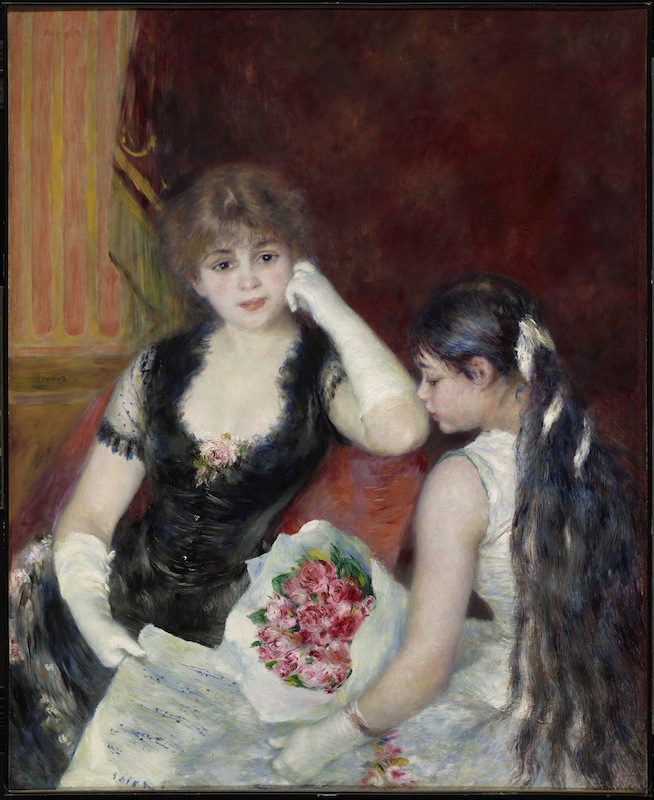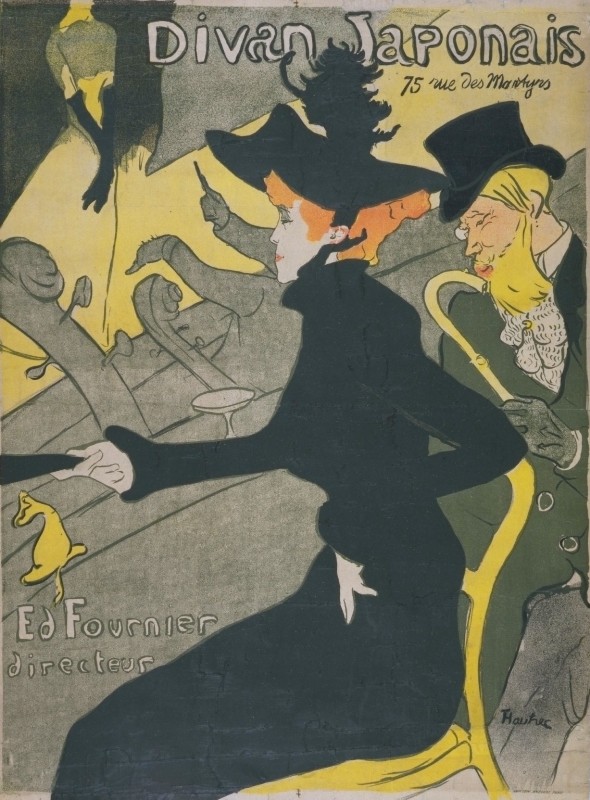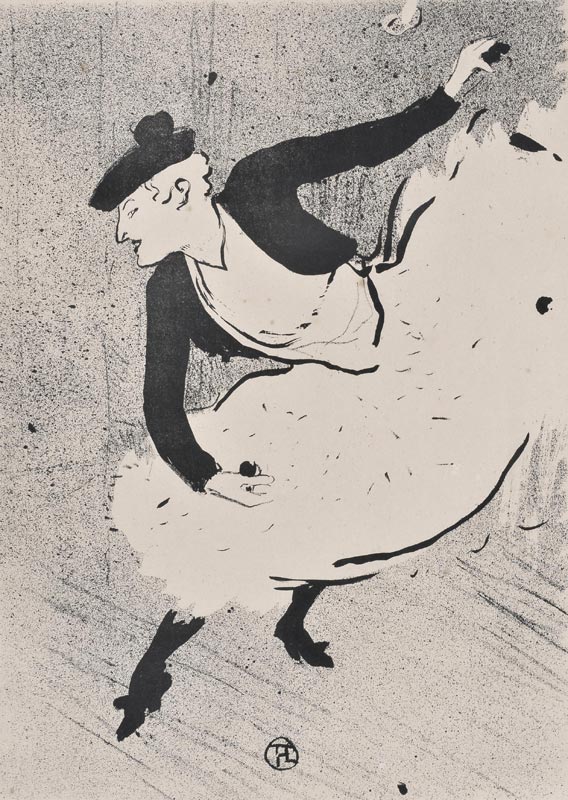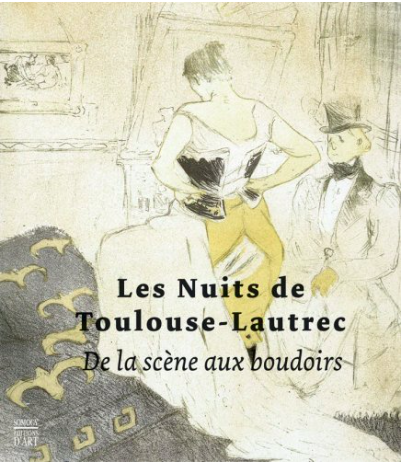Henri de Toulouse-Lautrec
1864 (Albi) / 1901 (Taussat)
Lautrec, painter of creatures, from the gangly dandy (his cousin Tapié de Céleyran in the wings of a theater) to the divinized women of the meeting houses, thus describes a humanity of "types" which are so many stolen snapshots intended to unmask the being. Mr. Fourcade (1889), frontal and dynamic in the ball of the Opera, gets ready to hit the easel, the Clowness Cha-U-Kao (1895) seems surprised whereas she holds back the overflows of her bustier, his former roommate Henri Bourges (1891) puts on his glove of chamois suede; muses and friends serve his enterprise of regeneration. So many images stolen, not from a magnified daily life for reasons of republican ideology, but from the modest moments of a polymorphous worldly representation. His deceptive technique, on cardboard instantly drinking pigments very diluted in petroleum applied by grapes as in pastel, serves a properly Japanese style whose portraits of men in high format, Whistler-style and which sometimes include a kakemono of pure paint, seem as many proclamations of his aesthetic inclinations. From his immersion in brothels, Lautrec brings back a vision of an inverted world in which the woman leads the dance.
Visual:
Henri de Toulouse-Lautrec dressed in a kimono, photograph by Maurice Guibert, 1892 Source Bnf
Lautrec, painter of creatures, from the gangly dandy (his cousin Tapié de Céleyran in the wings of a theater) to the divinized women of the meeting houses, thus describes a humanity of "types" which are so many stolen snapshots intended to unmask the being. Mr. Fourcade (1889), frontal and dynamic in the ball of the Opera, gets ready to hit the easel, the Clowness Cha-U-Kao (1895) seems surprised whereas she holds back the overflows of her bustier, his former roommate Henri Bourges (1891) puts on his glove of chamois suede; muses and friends serve his enterprise of regeneration. So many images stolen, not from a magnified daily life for reasons of republican ideology, but from the modest moments of a polymorphous worldly representation. His deceptive technique, on cardboard instantly drinking pigments very diluted in petroleum applied by grapes as in pastel, serves a properly Japanese style whose portraits of men in high format, Whistler-style and which sometimes include a kakemono of pure paint, seem as many proclamations of his aesthetic inclinations. From his immersion in brothels, Lautrec brings back a vision of an inverted world in which the woman leads the dance.
Visual:
Henri de Toulouse-Lautrec dressed in a kimono, photograph by Maurice Guibert, 1892 Source Bnf
Artist's exhibitions
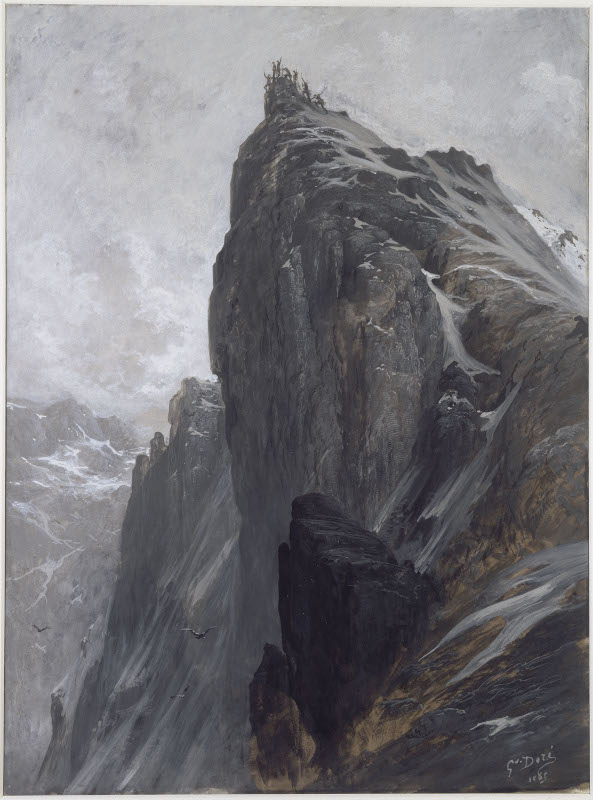
LES ARPENTEURS DE RÊVES, dessins du musée d’Orsay
02/07/2022 - 01/11/2022(Quimper) Musée des Beaux-Arts de Quimper

LES ARPENTEURS DE RÊVES, dessins du musée d’Orsay
02/07/2022 - 01/11/2022(Évian-les-Bains) Palais Lumière d’Évian

Collection Weisman & Michel. Fin de siècle – Belle Époque (1880-1916).
11/10/2019 - 19/01/2020(Paris ) Musée de Montmartre
.gif) Publicité
Publicité
Abonnez-vous à Art Absolument
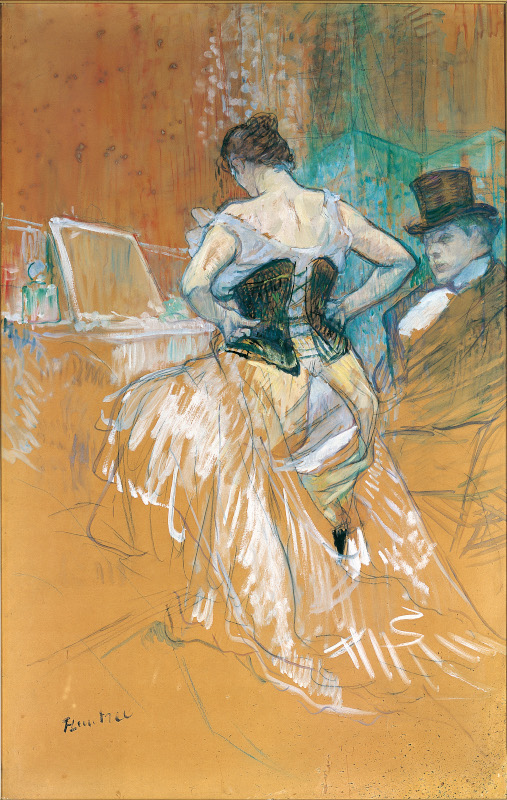
Toulouse-Lautrec. Résolument moderne
09/10/2019 - 27/01/2020(Paris) Grand Palais
Plus d'expositions
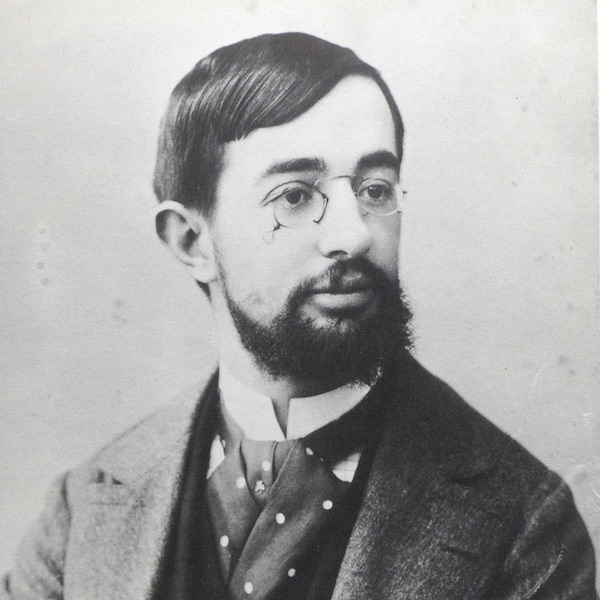
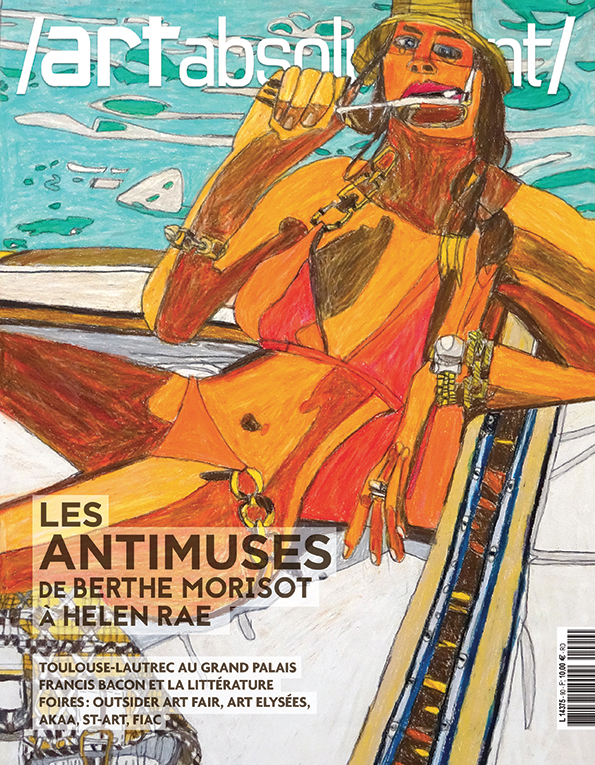
 1896.jpg)
